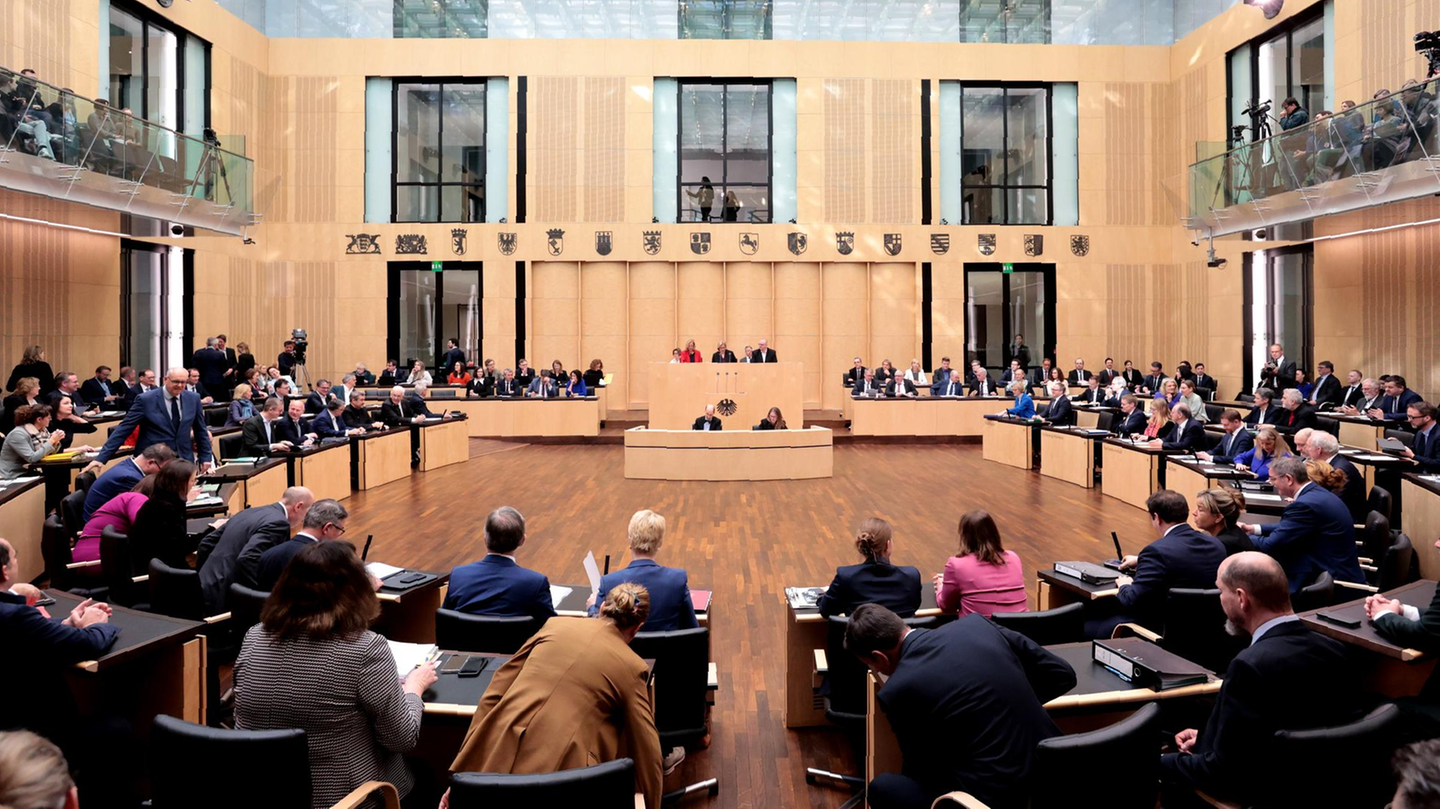Change of Basic Law
Federal Council votes for a billion -dollar financial package from Union and SPD
Copy the current link
Add to the memorial list
With a clear majority, the country chamber has cleared the way for the special fund for defense and infrastructure.
The Federal Council has approved the relaxation of the debt brake in favor of higher defense spending and the special fund of infrastructure of 500 billion euros. On Friday, the necessary two -thirds majority to change the Basic Law was reached in the country chamber. It was the last parliamentary hurdle for the project.
When voting on Friday, twelve of the 16 countries with the required two -thirds majority for the necessary changes in the Basic Law. 46 out of 69 votes were necessary for the approval of the country chamber. The threshold was now clearly exceeded with 53 votes. Brandenburg and Thuringia, where the Alliance Sahra Wagenknecht (BSW) allies in coalitions, and Rhineland-Palatinate and Saxony-Anhalt, where the FDP sits in the government, not for the unprecedented debt package.
The two -thirds majority in the Federal Council had long been considered unsafe because it was unclear how state governments would vote in which left, FDP, free voters and BSW. However, Bavaria had announced a yes on Monday. On Friday morning, Mecklenburg-Western Pomerania and Bremen also announced that they would agree. There are SPD Link governments in both countries. The approval of the state governments with the exclusive government participation of the SPD, Union and the Greens was already considered safe.
Kretschmann: It’s about the self -assertion of Europe
In the Federal Council, Baden-Württemberg’s Prime Minister Winfried Kretschmann justified the softening of the debt brake anchored in the Basic Law with the dramatically changing world situation. “It is no less than the self-assertion of Europe-security, economically and technologically,” said the Greens politician.
It is also about the self -assertion of our values of peace, freedom and democracy. “You can’t react to such an extraordinary challenge with ordinary means.”
Saxony’s Prime Minister Michael Kretschmer said that the problems of Germany could not be solved with money alone. The CDU politician urged structural reforms. “This second step has to come.” A new dynamic is necessary. “We have to solve growth brakes.”
Bremen’s Prime Minister Andreas Bovenschulte (SPD) called for the necessary investments in the infrastructure to quickly decide on the necessary execution laws. “What does the most beautiful special fund use us if we can’t do it in practice?”
Basic Law is changed to relax the debt brake
With the financial package, the expected future coalition partners Union and SPD want to react to the stricter threat situation against the background of the Russian war of aggression in Ukraine and decades of failures in the renewal of the infrastructure.
It is planned that the debt brake, which is anchored in the Basic Law, which sets close limits for the federal debt of the federal debt, is relaxed to enable high expenditure for defense, civil protection, intelligence services and cyber security. For all of these expenses that exceed one percent of gross domestic product, loans can be taken. That would be all about 44 billion euros this year.
In addition, a special fund is created, for which the debt brake does not apply and which is fed up to 500 billion euros with loans. This is intended to pay the repair of the dilapidated infrastructure in Germany. 100 billion euros are to go to the countries, another 100 billion euros are to flow into climate protection and the climate -friendly conversion of the economy.
Federal President concludes the law
After acceptance by the country chamberIf Federal President Frank-Walter Steinmeier will examine the law as to whether it has been constitutional. With its signature and the subsequent publication in the Federal Law Gazette, the amendment to the Basic Law is effective.
More information about this shortly here at the star.
Note: This article has been updated and further information was added.
AFP · dpa · Reuters
RW
Source: Stern
I have been working in the news industry for over 6 years, first as a reporter and now as an editor. I have covered politics extensively, and my work has appeared in major newspapers and online news outlets around the world. In addition to my writing, I also contribute regularly to 24 Hours World.




